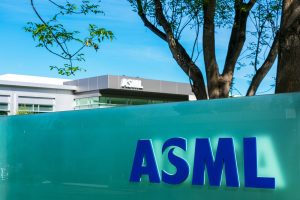On January 17, Dutch Prime Minister Mark Rutte met with U.S. President Joe Biden at the White House, where they discussed possible export restrictions on sales of deep ultraviolet (DUV) lithography machines by the Dutch company ASML to China. Reportedly, an agreement to that end between the United States, Japan, and the Netherlands was reached on January 27. While the details of the agreement were not made public, it is expected that Japan and the Netherlands will largely follow the outlines of existing U.S. sanctions.
It is understandable that the Netherlands and ASML feel pressured, and – under the heading of “free trade” – prefer to continue supplying DUV lithography machines to China. But it is also important to look at the other side of the coin and view the issue from a broader perspective.
The concept of “globalization” has suddenly experienced a serious downturn. Until rather recently, developed economies thought they could build a global trade network to achieve the most efficient division of labor through a system of free trade.
But the COVID-19 epidemic woke the world up to the fact that supply chains are vulnerable. Western states decided they need to reduce dependency on global supply chains; “resilience,” “redundancy,” “re-shoring,” and “friend-shoring” are the new keywords.
Following closely thereafter, the Russian invasion of Ukraine has made it crystal clear that the idea of “globalization” is very much dependent on peace in the world. If a major conflict erupts, there will be huge holes in the global trade network on which globalization thrives.
Finally, globalization is highly dependent on a level playing field and a rules-based international order. And that is where the problem with China comes in.
Advanced economies opened up their markets and knowledge institutions to China in the hope that it would become a more free and open society. The opposite has happened: China has become much more autocratic, and is now working hard – through “Made in China 2025” and similar policies – to ensure that China becomes much less dependent on Western knowledge and technology, even while the West grows more dependent on China for products (and markets). We can call this “asymmetric decoupling.” So, there is no “level playing field” to provide a foundation for globalization.
What are the implications of these broader trends for ASML and its products?
First, today’s world is a deeply divided one, in which the concept of globalization is much less applicable. As Dutch Minister Wopke Hoekstra emphasized in his speech in Washington, D.C., in April 2022, the fault line between democracy on the one hand and autocracy on the other runs not only across Europe, but also through the Indo-Pacific.
This has consequences for the way the Netherlands deals with China. A complete decoupling of the economies is perhaps not possible, but the Netherlands must decide whether it wants Dutch technology and knowledge to enable Beijing to grow rapidly in high-tech sectors that play a crucial role in the military expansion and threat China poses to its neighbors, and in the repression of its own population and minorities such as Tibetans and Uyghurs.
Continued supply of DUV machines to China will enable it to rapidly ramp up production of advanced chips, enabling the People’s Liberation Army’s to greatly increase its number of missiles, fighter jets, and warships.
And that is a danger to world peace, because China will seize the first opportunity to try to use overwhelming force to annex a democratic Taiwan – which lies on the other side of Hoekstra’s fault line. At the moment, China is in the process of incorporating today’s chips into its most modern weapon systems, which will therefore pose an increasing threat to peace and security in East Asia in the future.
Also, continued supply of DUV machines to China enables Chinese firms to play leapfrog and build such machines themselves within one or two years. Every new machine that ASML still sells to China helps Chinese companies to master this new technology more quickly (ASML makes continuous improvements to the machines). Past experience in so many other areas – from China’s Beidou satellite navigation system to solar panels and 5G technology – shows that Chinese companies are quick to duplicate and then further develop a technology.
It is therefore in ASML’s own interest to change course quickly, to stop daydreaming about the Chinese market, and to focus much more on building an ecosystem for chip production in countries that do pursue mutual interests, observe the international rules of the game, and are committed to peace, security and human rights in the world.

































